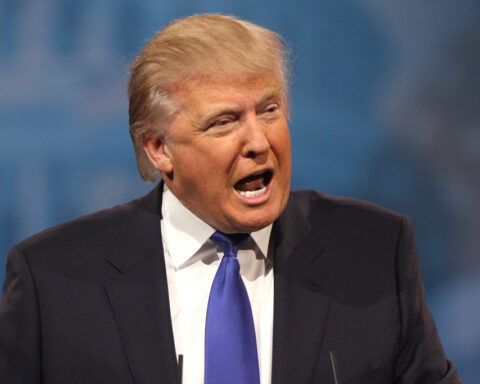In a sweeping escalation of economic pressure on Moscow, the European Union on Friday reportedly adopted its most aggressive sanctions package since the onset of Russia’s full-scale invasion of Ukraine, targeting oil exports, financial institutions, and foreign facilitators of the Kremlin’s war machine.
The move comes as President Donald J. Trump—who has until recently championed negotiations—issued his sharpest warning yet to Russia: stop the war within 50 days or face “very severe tariffs.”
The EU’s new sanctions impose a lower price cap on Russian oil exports, blacklist dozens of banks and vessels, and effectively bury any hope of reviving the Nord Stream gas pipelines—once Putin’s centerpiece project for expanding Russian energy dominance in Europe.
European officials hope their effort will be bolstered by a stronger U.S. stance, now increasingly aligned with the view that the Kremlin has no intention of ending its aggression.
“We are striking at the heart of Russia’s war machine,” said European Commission President Ursula von der Leyen. “The pressure is on. It will stay on until Putin ends this war.”
The centerpiece of the new measures is a cut to the price cap for Russian oil exports, dropping it from $60 to $47.60 per barrel. The cap, which permits Western insurance and shipping services only if crude trades below the threshold, had previously weakened in effect as Moscow found workarounds.
EU officials are now also targeting Russia’s “shadow fleet” of aging, uninsured tankers and clamping down on exports processed through countries like India and Turkey.
In addition to barring petroleum products refined from Russian crude, the EU will sanction Rosneft’s refinery in India, and place 105 more vessels under embargo.
The financial crackdown deepens as well. The EU will expel 22 more Russian banks from the Swift transaction system and block all activity from previously listed financial institutions.
For the first time, sanctions will also hit outside enablers—including two Chinese regional banks accused of facilitating Russian sanctions evasion. The move risks further souring relations with Beijing ahead of next week’s EU-China summit.
Estonia’s foreign minister Kaja Kallas confirmed that Chinese banks “have aided Russian sanctions evasion.” Beijing responded sharply. “China will take actions to safeguard the legitimate rights of Chinese companies overseas,” a Foreign Ministry spokesperson said.
The sanctions also formalize what many in Europe now see as irreversible: the end of the Nord Stream gas pipelines.
Once touted as vital infrastructure connecting Siberian gas to German industry, the twin pipelines—Nord Stream 1 and 2—were central to Putin’s energy strategy. But they were effectively destroyed in a September 2022 operation carried out by Ukrainian divers and intelligence operatives.
Despite the Biden administration lifting Trump-era sanctions on Nord Stream 2 in 2021, the pipeline never went into operation before the war resumed in 2022.
Under Chancellor Friedrich Merz, Germany has now taken a harder stance, pressing the EU to permanently ban any revival of the project. “No transactions related to Nord Stream will be allowed,” EU officials confirmed.
The economic pain on Russia is mounting. Inflation is surging, interest rates stand at 20%, and consumer demand is shrinking. Even Kremlin spokesman Dmitry Peskov admitted the sanctions would impact Russia, though he insisted the country had developed a “certain immunity.”
Ukrainian President Volodymyr Zelensky welcomed the EU’s move as “essential and timely,” while pressure mounts for the U.S. to match Europe’s assertiveness.
After months of measured diplomacy, Trump appears to be recalibrating.
Having recently announced a fresh tranche of U.S. weapons for Ukraine, the president has warned Moscow of dire consequences unless it ceases hostilities. In a statement, Trump said Russia must act within 50 days “or face very severe tariffs on its trade.”
As Europe leads the charge economically, and Trump signals readiness to act decisively, the West’s unified pressure on Putin appears to be intensifying at a pivotal moment in the conflict.
[READ MORE: New Ukrainian Drone Barrage Hits Russian Capitol]







